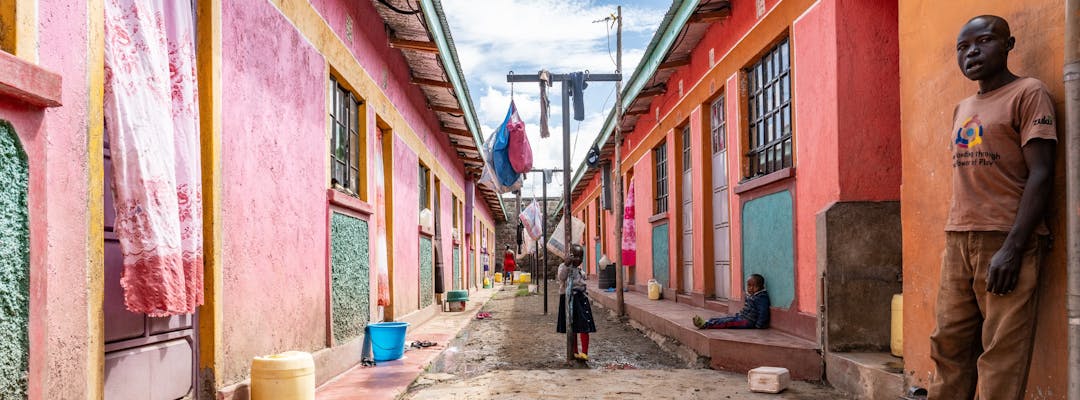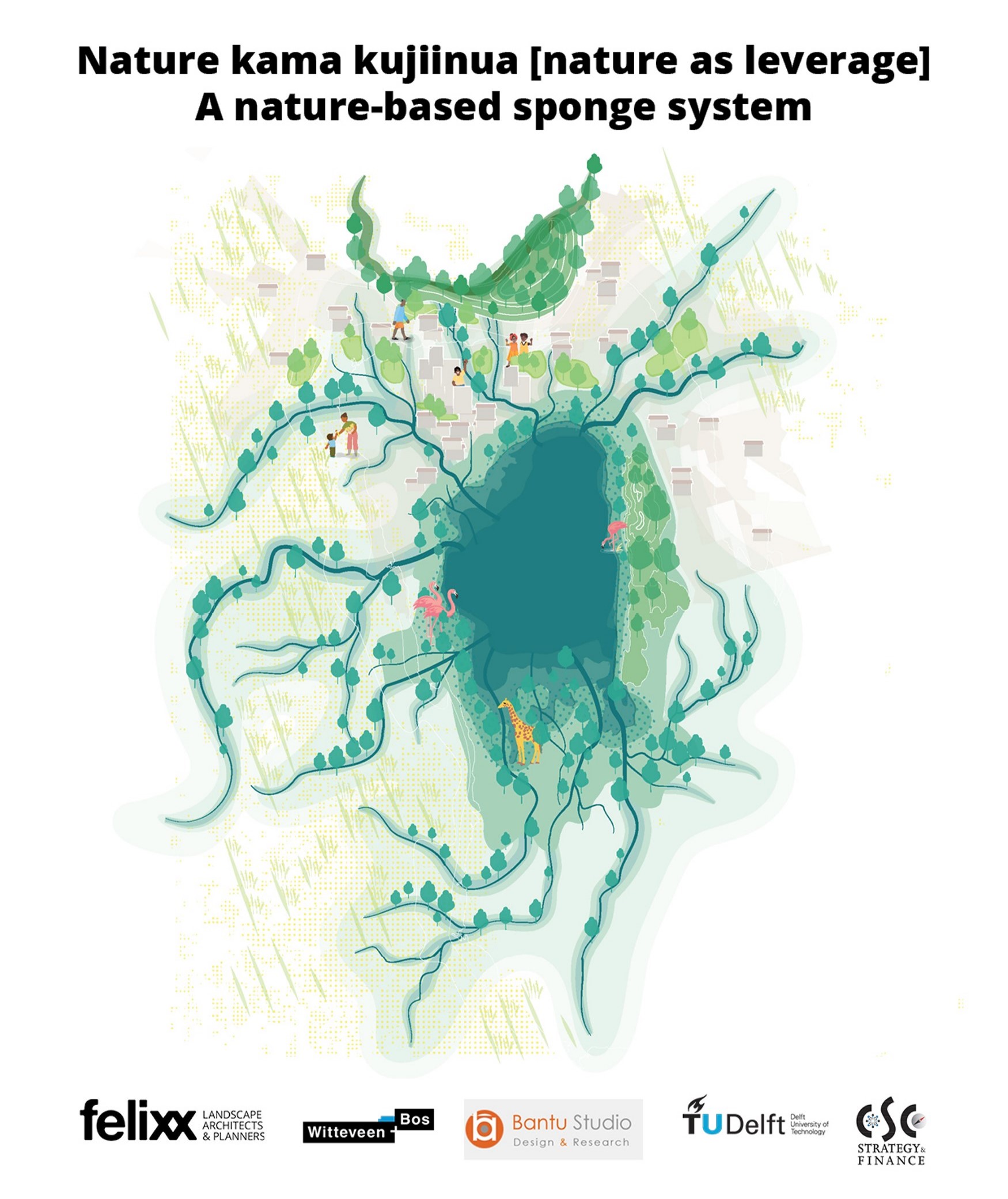
One Multidisciplinary team has been selected to become part of WaL Nakuru
December 9, 2024
A multidisciplinary team has been selected to become part of Water as Leverage Nakuru
Nakuru, one of Africa's fastest-growing cities, is taking bold steps to address critical water challenges through the Water as Leverage (WaL) initiative. Officially designated as a city in 2021, Nakuru faces pressing issues such as prolonged dry spells, intense flooding, rising water levels in Lake Nakuru, and rapid urbanization, particularly in flood-prone informal settlements.
In Nakuru, the Water as Leverage methodology is being implemented to address urban climate adaptation challenges by fostering innovative, inclusive, and integral solutions. Building on existing partnerships between the Nakuru County government, VEI, UN Habitat, and the Netherlands Embassy in Kenya, the initiative integrates local, national, and international stakeholders. WaL Nakuru focuses on investing in early-stage project development to unlock substantial funding for feasibility studies and implementation. Its goal is to deliver bankable projects and sustainable interventions that support resilient economic development while aligning with key local and national policy ambitions. The WaL Nakuru program aims to bring together a multidisciplinary team of Dutch, Kenyan, and international organizations to co-design these sustainable interventions.
We’re proud to announce the Water as Leverage Nakuru multidisciplinary team consisting of Felixx Landscape Architects & Planners (Lead organisation, the Netherlands), Witteveen+Bos (the Netherlands), Bantu Design Studio (South Africa), CSC Strategy & Finance (the Netherlands), TU Delft (the Netherlands), Planning Development Consulting Ltd. (Kenya), Egerton University (Kenya).
Proposal’s name: Nature kama kujiinua [Nature as Leverage]. A nature-based sponge system

The Water as Leverage Nakuru program represents a transformative approach to water management, pioneering innovative and multidisciplinary models that lay the groundwork for resilient urban growth. The “Nature kama kujiinua” (Nature as Leverage) proposal directly addresses the pressing water management crises facing Nakuru— a city distinguished not only by its rapid urbanization but also by its rich ecological and cultural heritage. Yet, this vibrant city is in turmoil, grappling with unsustainable water demands, dwindling groundwater reserves, and environmental degradation that jeopardizes its future.
This proposal advocates for integrating Nature-Based Solutions (NBS) within a cohesive framework known as the Nature-Based Sponge System (NBSS), harmonizing urban development with natural water cycles. By doing so, we aim to enhance resilience against climate change and mitigate water scarcity. Reversing the norm from draining to retaining emphasizes the need to challenge existing and traditional water management systems, shifting towards future-oriented approaches and establishing new relationships between water and territory. This shift emphasizes the need to leverage not only water but also the inherent potential of natural systems within the city and its surroundings.
Nature-based solutions are pivotal in building climate resilience and preserving biodiversity. However, for NBS to be genuinely effective, they must prioritize inclusivity, ecological integrity, and social equity. Critics have raised concerns about NBS reinforcing existing power imbalances or commodifying nature for profit. Therefore, the proposal emphasizes context, inclusivity, and community engagement, integrating Indigenous knowledge and holistic perspectives. This commitment will enable us to reimagine a symbiotic relationship between Lake Nakuru and the urban environment, cultivating adaptive solutions that strengthen the vital connections between ecological systems and urban development.
Together, we are paving the way for Nakuru to become an inspiring example for climate resilience, using sponge city models and NBS for a sustainable urban growth in Africa.